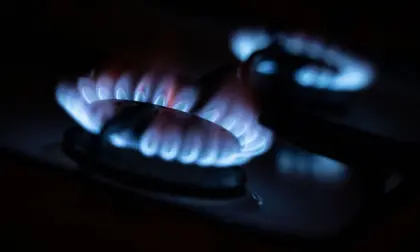The finance ministers of the G7 countries agreed on Friday to move forward on implementing a cap on the price of Russian oil. EU Commission President Ursula von der Leyen also favours introducing a price cap on gas imports. Russia is threatening to cut off supplies entirely.
Today, Europe’s press debates the ongoing energy crisis caused by Russia’s invasion of Ukraine and subsequent ‘blackmail’ of Europe via the withholding of gas and oil. Here are some opinions from a selection of European publications presented by eurotopics.
JOIN US ON TELEGRAM
Follow our coverage of the war on the @Kyivpost_official.
Beat Putin at his own game
Capping gas import prices as well as oil import prices could give the EU a decisive advantage, La Stampa explains:
“Until now Putin has dictated the rules of the game and controlled both the amount and the price of gas delivered to Europe. … But if the gas is not purchased – or purchased in insufficient quantities – the balance of power will be reversed. Because Russia is no less dependent on gas sales than Europe is on gas purchases. Unlike oil, gas cannot be sold at a discount to China and India – pipelines can’t change course the way oil tankers can. … Russia is bound hand and foot to the European gas market. That makes the current situation a double-edged sword: the Europeans can put a limit on the price. And that is precisely what the EU plans to do.”
Western Europe has little to lose at this stage

UK Contracts Arms Makers to Make Artillery Barrels for Ukraine
Cutting off gas supplies would hit Russia harder than Europe, Kommersant suspects:
“Supply volumes have already declined so much that it no longer makes sense for Europe’s key countries to make concessions. … If the price cap is adopted, Russia will of course not agree to it. And Gazprom will stop deliveries to customers who don’t pay their bills in full compliance with the presidential edict of 31 March. Even if the price of gas in Europe then goes up again, Gazprom will lose about half its income, because it has no possibility to divert its gas to other markets. … In fact the countries of Western Europe already have nothing to lose.”
Has the Kremlin taken too big a risk?
Moscow is taking a big gamble, says Tygodnik Powszechny:
“The Kremlin is expecting mass protests to lead to political upheavals. A foretaste of this was the protest last Saturday in Prague, where between fifty and seventy thousand people demonstrated against high energy prices, the Czech government and its support for Ukraine. Russia has decided to play a dangerous game, risking its future in what has traditionally been its most important gas market. But there is reason to hope that the Kremlin has gambled away any advantages it still had.”
Together we can achieve more
It augurs well for the EU that efforts are now being made to find common solutions, Le Soir writes approvingly:
“Macron seems to have regained his composure and called on Monday for a European mobilisation: cap the price of Russian gas, create a European levy [excess profits tax] to aid member states, introduce solidarity bartering ‘French gas for German electricity’ and joint purchases of the sort that worked well with vaccines, and all this with thermostats set at 19 degrees in French homes. Together we can do more: that must be the motto of the Commission and the 27 heads of state and government.”
You can also highlight the text and press Ctrl + Enter










